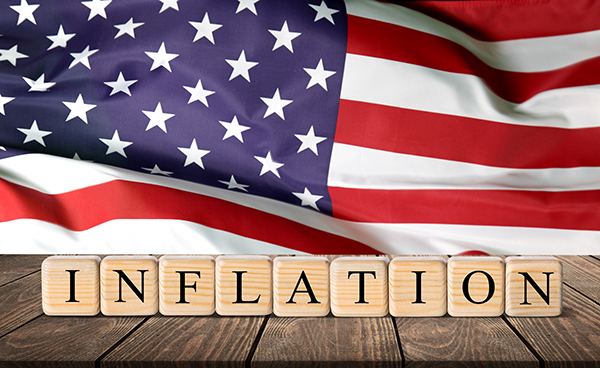Survey: The average American has over $54,000 worth of debt and would do almost anything to get rid of it
06/28/2023 / By Arsenio Toledo

A new survey has found that the average American has over $54,000 worth of debt – debt that many would do anything to get rid of.
This is according to the survey conducted by market research company OnePoll on behalf of debt resolution firm Beyond Finance. The survey found that the average poll taker had about $54,767 worth of debt, with more than half – 56 percent – saying they owe more due to the need to pay for necessities, rather than due to unnecessary purchases. (Related: Inflation remains a problem for middle- and lower-income Americans as Biden’s Federal Reserve keeps raising interest rates.)
This massive debt is preventing these Americans from making significant life changes. Thirty-three percent said it is preventing them from buying or putting down a mortgage for a home. Thirty percent said it is preventing them from buying a car. Twenty-four percent said it is preventing them from setting up a proper savings plan for the future of their children.
“Debt can sometimes deter people’s short- and long-term goals for themselves and their families,” said a spokesperson for Beyond Finance in a statement. “Learning to manage it effectively can be life-changing, but 49 percent admit to feeling anxious about their debt, which may make it challenging to focus on finding solutions.”
The biggest debt hurdles people have include credit card debt (57 percent), mortgages (30 percent), auto loans (30 percent) and medical debt (28 percent).
Many of the respondents said some of this debt was worth it to accrue. These include mortgages for 38 percent of respondents, car loans for 33 percent and home improvements or repairs for 28 percent.
The average American would do almost anything to be debt-free
When asked what Americans would be willing to do to be completely debt free, 32 percent said they would be willing to give up social media for a year. Thirty-one percent said they would be willing to spend a night on a remote island. Twenty-nine percent even said they would be willing to give up all internet access for a month just to be debt-free.
When asked what they would do if they woke up debt-free, 32 percent said they would immediately put more money into their emergency funds. Twenty-seven percent said they would buy their dream home. Twenty-six percent said they would take that long-postponed vacation.
Many others gave a variety of answers, including people who said they would pursue a different career, start a business, put more of their money into the education funds of their children and help their parents with their debts.
While becoming debt-free would be a welcome reprieve, many of the survey respondents with debt believe they could only stay debt-free for eight-and-a-half weeks, or about two months, before circumstances would force them to accrue new debt.
This is of course not true for all survey respondents, with 38 percent saying they felt “very confident” in their ability to remain out of debt. However, most were not so sure.
The most uncertain respondents gave a variety of answers as to why they feel they might have to take on more debt, including the rising cost of living (54 percent), unexpected expenses like emergencies (46 percent), rising Federal Reserve interest rates (29 percent), not having enough support from friends or family (20 percent) and feeling the pressure to keep up with the spending habits of others (16 percent).
Many of the respondents are also seeking support to manage their debt. A little under a third of respondents – 31 percent – are getting support from their families.
However, only 29 percent said they were “very confident” in their ability to pay off their current debts on time, with 41 percent saying it could take them years of hard work to be fully debt-free. Furthermore, more men (41 percent) than women (19 percent) said they were confident in their ability to pay off their debts on time.
“Choose a debt resolution program that’s personalized to your needs and helps you keep track of your progress,” advised Beyond Finance’s spokesperson in the company’s statement. “Seeing your debt gradually diminish is a great way to stay motivated on the path to becoming debt-free.”
Learn more about the debt issues plaguing the United States at DebtCollapse.com.
Watch this episode of InfoWars as Royce White discusses why America’s debt needs to be handled as a matter of national security.
This video is from the InfoWars channel on Brighteon.com.
More related stories:
US home foreclosures SURGE as inflation continues to soar and incomes decline.
Number of Americans defaulting on subprime auto loans nearing levels not seen since Great Recession.
Survey: 75% of people in Joe Biden’s America believe the country’s economy is GETTING WORSE.
The American economy cannot afford another four years of a Biden presidency.
Sources include:
Submit a correction >>
Tagged Under:
Bubble, debt bomb, debt collapse, debt resolution, debt-free, economic collapse, economics, economy, finance, finance riot, market crash, money supply, pensions, personal debt, personal finance, risk, truth
This article may contain statements that reflect the opinion of the author
RECENT NEWS & ARTICLES
COPYRIGHT © 2017 RISK NEWS


















